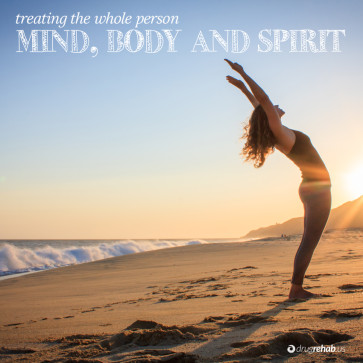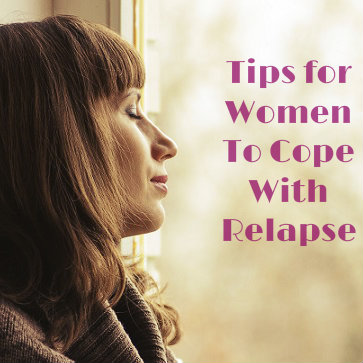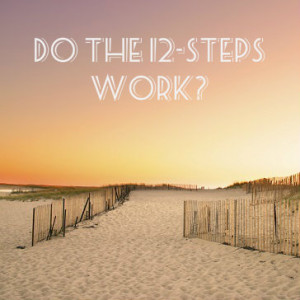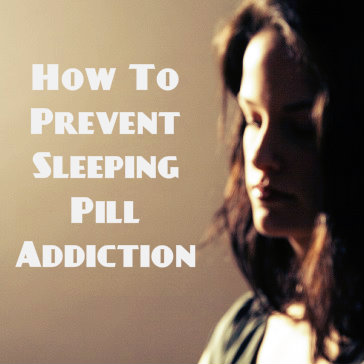07 Aug 2014
The Place For Alternative Medicine In Addiction
Alternative medicine is gaining popularity as people begin to turn to natural practices in medicine, many of which have been used for centuries in cultures around the world. Some prefer to use alternative medicine, while others turn to practitioners when modern medicine has failed. Today, alternative medicine touches all areas of healing, including addiction. Many rehab facilities are beginning to incorporate some of these techniques.
What Is Alternative Medicine?
Among the different terms referring to alternative medicine, a few stand out. Alternative refers to any practice outside mainstream, modern, Western medicine. Some prefer the term holistic medicine, which means treating the whole person instead of treating a disease or a set of symptoms alone. Holistic approaches use many alternative practices. Complementary medicine is another term commonly used. These are alternative medicine practices that are used in conjunction with traditional treatments.
What Kinds Of Alternative Therapies Are Used For Addiction Treatment?
 Alternative medicine encompasses a variety of practices from ancient Chinese herbal remedies to modern biofeedback equipment. A few of these have found a place in addiction rehab and have helped some people in their battle to give up drugs or alcohol. Acupuncture, which comes from traditional Chinese medicine, is a practice that involves inserting thin needles into the skin. Acupuncture is believed by some to help reduce cravings and the urge to relapse.
Alternative medicine encompasses a variety of practices from ancient Chinese herbal remedies to modern biofeedback equipment. A few of these have found a place in addiction rehab and have helped some people in their battle to give up drugs or alcohol. Acupuncture, which comes from traditional Chinese medicine, is a practice that involves inserting thin needles into the skin. Acupuncture is believed by some to help reduce cravings and the urge to relapse.
Meditation and yoga are also often used as components of addiction treatment. Both come from ancient India and are great for relaxation and stress relief. Yoga is a type of exercise that involves using controlled movements. Research has proven that yoga helps people manage stress. When you can reduce stress in your life you can better resist the urge to abuse substances. Meditation has a similar effect; it helps focus the mind and control will. Turning to meditation when craving occurs can be a very powerful and effective tool.
Other types of alternative medicine may be used during addiction treatment, although research as to their effectiveness is limited. Some of these include art therapy, equine therapy (working with horses), massage therapy, herbal supplements, prayer or spiritual enrichment and hypnosis. Some rehab facilities may also use biofeedback and neurofeedback. These are techniques that use equipment to measure body and brain processes so that you can learn to control them. In neurofeedback, brain waves are retrained to a normal pattern to help reduce cravings.
Should I Use Alternative Medicine To Help Treat Addiction?
Whether alternative medicine practices can help you overcome addiction is uncertain. There is evidence for some of the more common practices like yoga and meditation, but others have received limited attention from researchers. For the most part, these practices are safe and it can’t hurt to try them. If they work for you and help you to stay sober and resist cravings, use them.
Only choose to participate in alternative medical care from experienced practitioners. If certain techniques are of interest, speak to your therapist, clinical team or doctor to get resources for practitioners who have worked with addicts. Most techniques are safe, but in the wrong hands there could be consequences or side effects. Also remember that alternative medicine should be used only in addition to primary addiction treatment. It is also necessary to keep up with therapy or support group sessions. The combination of traditional and alternative medicine, however, may prove to be just the right plan that works for you.
Read Our Other Posts On Addiction Recovery!
06 Aug 2014
Tips To Cope With Relapse As A Woman
Addiction is a problem that affects both men and women. It doesn’t discriminate. But how we cope with addiction, how we heal from it and how we relapse does depend on our gender. As a woman your motivations for using drugs or alcohol again, after a period of sobriety, are likely different from a man’s. The best way to cope and get back on your feet will also differ for you as a woman. If you do relapse, realize that there are effective ways to help you cope and get sober again.
Women And Relapse
 Researchers have found that there are differences between the genders with respect to addiction, treatment and relapse. One study looked at thousands of alcoholics, both men and women, receiving treatment. Each participant attended an assigned style of treatment, but all were allowed to go to support group meetings in addition to their official programs. All then reported on how they fared in terms of sobriety, relapse and support.
Researchers have found that there are differences between the genders with respect to addiction, treatment and relapse. One study looked at thousands of alcoholics, both men and women, receiving treatment. Each participant attended an assigned style of treatment, but all were allowed to go to support group meetings in addition to their official programs. All then reported on how they fared in terms of sobriety, relapse and support.
The researchers found that men who took advantage of support groups, such as Alcoholics Anonymous, did so to make non-drinking friends and to build up a support network to help them avoid the temptations of being around alcohol. For men, being in social situations with alcohol was the biggest trigger to relapse. The study found that this wasn’t the case for women. For us, the biggest trigger is emotional. Women used support groups to cope with their emotions, like depression or anxiety, which tempted them to relapse and start drinking again.
Women And Emotions
Knowing that as a woman your primary triggers for relapse are your feelings and state of mind, you have a powerful piece of information. Knowing your triggers is the key to avoiding them and avoid having a relapse. With emotions backing your relapse triggers, it is more important than ever to pay attention to and care for your emotional life. Here’s what you can do:
Tips To Cope With Relapse And Emotions
- Stay in counseling – Therapy or counseling sessions help you recognize, regulate, and control your emotions. Many people who have gone through rehab simply stop attending sessions thinking they no longer need the help. You may not need your therapist as often as you once did, but you still need some check-ups. Keep a regular, even if infrequent, schedule of counseling sessions for emotional maintenance.
- Practice relaxation techniques – When your emotions start to build and you feel angry, lonely or depressed, you may want to turn back to your habit. Instead, turn to meditation, yoga, and other practices that help you relax and re-focus. These can be very powerful ways to control your urges to relapse.
- Take care of your body – Too often we are too busy to take good care of ourselves, but our emotional states are connected to our physical states. Eat well, get plenty of sleep every night, and get regular exercise and you will feel better every day.
- Get involved – Being intellectually and socially engaged with the world around you can help you to better cope with your emotions. Having a support network is important in helping you resist relapse urges, but so is engaging your mind. Try new activities and develop new hobbies and skills.
As a woman you face unique problems associated with your addiction and your potential to relapse. Unlike men, we are driven to abuse substances by our emotions. We cope with our feelings by using drugs or by drinking. When you can learn to recognize your destructive emotions and cope with them, you can avoid relapsing and stay sober.
Read Our Other Informative Addiction Blogs To Help Women!
05 Aug 2014
Do 12-Step Programs Work?
The 12 Steps have long been a key element of addiction treatment and recovery. For decades, the majority of treatment programs have used the 12 Steps, while addicts in recovery have attended AA and other 12-Step meetings in order to maintain sobriety. These programs have come under a great deal of scrutiny with some people singing their praises and others discounting them and even calling them dangerous. If you are facing addiction and want to get or stay sober, should you consider joining a 12-Step support group? Do they actually work?
Criticism Of The 12 Steps
 There are many who criticize these kinds of programs, including AA, but also any organization that uses the 12-Step philosophy. Addiction experts don’t all agree, but those who do not like the 12-Step philosophy have several arguments. One is that it requires you to admit to being powerless in the face of your addiction. Some would say that the statement is not only false, but also counter-productive. If you are helpless and can’t exert power over your addiction, how can you possibly get better? Others claim that the statistics simply show 12-Step programs don’t work for most people. Success rates have been measured as low as 10 percent.
There are many who criticize these kinds of programs, including AA, but also any organization that uses the 12-Step philosophy. Addiction experts don’t all agree, but those who do not like the 12-Step philosophy have several arguments. One is that it requires you to admit to being powerless in the face of your addiction. Some would say that the statement is not only false, but also counter-productive. If you are helpless and can’t exert power over your addiction, how can you possibly get better? Others claim that the statistics simply show 12-Step programs don’t work for most people. Success rates have been measured as low as 10 percent.
More serious criticisms come from members who have had bad experiences. Some claim that these support groups are gathering grounds for people with violent tendencies or for predators looking for weak victims. There certainly have been terrible incidents involving addiction support groups. One reason for this is that criminal offenders are often forced to attend meetings as a part of sentencing.
How The 12 Steps Can Help
While there are critics, there are also supporters of 12-Step programs and those who praise the effectiveness of such groups. In fact, recent research has shown that recovering addicts who are deeply involved in a 12-Step group are more likely to avoid relapsing. The study compared recovering addicts leaving treatment and going into a sober living house, a 12-Step program, or simply going home. Those who went to a 12-Step group and really got involved in it were nearly three times more likely to abstain than those who did not. Participants in sober living were the most successful.
One of the most important aspects of the findings is the comparison between the different levels of participation in a 12-Step group. The researchers looked at those who met all criteria for active involvement as well as those who did not. The former were people who engaged in service work, made use of a sponsor, read group literature and called other group members for support. These people were more successful at abstaining than those who simply attended meetings, but didn’t get more involved. The study extended two years beyond treatment and found the same results throughout the two-year period.
The results of the study clearly show that a 12-Step program can help you stay sober if you take the right steps. First, you need to have already completed an addiction treatment program. Simply relying on a 12-Step group to get you sober is not enough. Once you have completed treatment, a 12-Step program can help you stay sober, but only if you get involved. Throw yourself headlong into the support, reach out to others, help others and you can reap the benefits of this decades-long philosophy of sobriety. Join half-heartedly and you may not get all the benefits. The 12-Steps can help you, but you have to do it right.
Find Out If Methadone Users Can Participate In A 12-Step Program
Contact Us Now For More Information On 12-Step Programs! Freedom From Addiction Is Possible!
04 Aug 2014
How To Cope With A Dual Diagnosis
Addiction and mental illness often go together. If you are addicted to drugs or alcohol, the effects of those substances in your brain can bring on symptoms of depression, anxiety or other mental health disorders. Conversely, if you have a mental illness you may medicate yourself using drugs or alcohol. If you have received a dual diagnosis and are struggling with both mental illness and addiction, there is hope and there is help.
 You Are Not Alone
You Are Not Alone
It may come as a surprise to you when you find out you have been struggling with a mental illness. Getting that diagnosis is never easy to face, but know that you are far from alone. Nearly half of all people with a severe mental illness also have substance abuse issues. Furthermore, half of people who abuse drugs and a third of people who abuse alcohol also struggle with mental illness. Anxiety disorders and depression are the most common mental illnesses that co-occur with addiction. Bipolar disorder and schizophrenia are also seen together with addiction.
Learn About Your Illnesses
When you get that diagnosis for depression, anxiety disorder or any other mental health issue and you also realize you have a problem with drugs or alcohol, it may feel like a light bulb went off in your head. Certain behaviors and feelings may begin to make more sense. To truly understand what is going on in your brain and to empower yourself to act, learn more about both mental health and addiction. The more you know the less mysterious and sinister it will seem. In educating yourself you will also begin to learn about treatment options.
Get Treatment For Addiction And Mental Illness
Getting treatment is important when you have a dual diagnosis. Either you have been self-medicating to treat your mental health symptoms or your symptoms have worsened because of your substance abuse. In either case, you are stuck in a harmful pattern of behaviors. Experts agree that you should treat both issues to get well. One may take precedence over the other, though. For instance, if your substance abuse is wreaking havoc on your physical health and running your life you may need to address your addiction first.
Start with your primary care doctor if you aren’t sure where to go to get help. Your doctor can recommend psychologists or therapists who can get you on the right treatment path for you. You may need to spend some time in a rehab facility. If you do, make sure you look for a program that is experienced in treating people with a dual diagnosis. You don’t want to ignore either one of your issues while treating the other.
Look For Support
Above all, when you find out that you have both an addictive disorder and a mental health disorder it is important to rely on friends and family. A strong support network is one of the most important ways that you can cope with your recovery and treatment. Getting professional help is necessary, but without the support of loved ones, you are at serious risk of relapsing after completing a treatment program.
Support groups can help too. Look for group meetings for alcohol or drug addiction, but also for meetings for people with mental health issues. If you need to join two different groups to meet your needs, that’s fine; just make sure that you have a group of people with whom you can share your feelings and experiences. It will make a big difference to your recovery. Getting a dual diagnosis is not easy to hear, but remember that you are not alone and that there are caring professionals ready to help you.
01 Aug 2014
How To Avoid Getting Hooked On Sleeping Pills
When most of us think about addiction, we envision someone shooting up heroin, smoking meth or drinking nonstop. Did you know that you can develop a dependence on drugs that seem much more harmless? We tend to think of prescriptions as safe because they are prescribed by doctors, but you should always be aware of the risks of any drugs you take. Sleeping pills are used commonly in the U.S. and it is possible to become addicted to them. If you need sleep aids, find out what the dangers are and learn how not to become dependent on them.
Can A Pill Cure My Sleeping Problems?
 Too many people rely on sleep aids to get a good night’s rest without dealing with their underlying problems. Being unable to sleep is usually a symptom of another problem. You may struggle to sleep because you have another medical condition, but it’s more likely that your insomnia is related to stress. While a sleep aid may help you get some rest, it is not the answer to your problems. Sleeping pills are designed for short-term use, not for lifelong treatment.
Too many people rely on sleep aids to get a good night’s rest without dealing with their underlying problems. Being unable to sleep is usually a symptom of another problem. You may struggle to sleep because you have another medical condition, but it’s more likely that your insomnia is related to stress. While a sleep aid may help you get some rest, it is not the answer to your problems. Sleeping pills are designed for short-term use, not for lifelong treatment.
Are Sleeping Pills Addictive?
If you do use your sleep aid for a long period of time or if you deviate from your doctor’s instructions, you run the risk of experiencing side effects, of not solving the underlying problem causing insomnia and of developing a dependence on the medication. The risk level depends on the medication. Sleep aids include those that help you fall asleep and those that help you stay asleep through the night.
In the first category is Lunesta, which can cause withdrawal symptoms, and Halcion and Sonata, both of which are habit-forming. Among the drugs that can help you stay asleep all night are Estazolam and Restoril, both of which are also habit-forming. There are other sleeping pills that can be prescribed, which are not habit-forming and which do not cause withdrawal when you stop using them. Each one comes with its own list of side effects and some may not work well for you. Which one you take is a decision you and your doctor should make.
Some prescription sleeping pills are habit-forming, which means they are susceptible to abuse and can lead to addiction. Even with those medications that are not considered addictive, there is a risk of developing dependence. When you rely on a pill to get to sleep at night you may become psychologically dependent on it. The idea of not having that crutch to help you sleep can cause anxiety and lead you to keep using the medication, even when you no longer need it.
How Can I Take Sleeping Pills Safely?
The most important consideration in taking prescription sleep aids is to follow your doctor’s instructions. Speak up and discuss with your doctor if you feel like you are becoming dependent on your sleeping pill. Even over-the-counter sleep aids can lead to dependence if you are relying on them every night. If you need to take one for several nights in a row, talk to your doctor so that you can address the underlying reasons for your insomnia.
A sleep aid can be a good way to catch up on rest, but it is not a solution to your problem. Make sure that you get treatment for your insomnia. This may mean going through counseling to address any psychological issues keeping you awake, or trying natural methods or alternative medicine. Always take care when using prescriptions of any kind and keep yourself informed as to the risks and the possibility of dependency.


